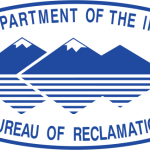- Settore: Government
- Number of terms: 15655
- Number of blossaries: 0
- Company Profile:
A U.S. Department of the Interior agency that oversees water resource management incuding the oversight and operation of numerous diversion, delivery, and storage projects the agency has built throughout the western United States for irrigation, water supply, and attendant hydroelectric power ...
An inclined trough which carries water from above to below a dam so that fish can easily swim upstream. There are various types, some with baffles to reduce the velocity of the water and some consisting of a series of boxes with water spilling down from one to the next.
Industry:Engineering
An inclined trough which carries water from above to below a dam so that fish can easily swim upstream. There are various types, some with baffles to reduce the velocity of the water and some consisting of a series of boxes with water spilling down from one to the next.
Industry:Engineering
A formal document that states the intentions and/or responsibilities of the signatory parties. A memorandum of understanding does not provide the authority to transfer any funding from Reclamation to another party, but may cover Reclamation services reimbursed by others.
Industry:Engineering
The placement of a tagout device on an energy isolating device, in accordance with an established procedure, to indicate that the energy isolating device and the equipment being controlled may not be operated until the tagout device is removed. See lockout and clearance.
Industry:Engineering
Irrigable land for which a water supply is delivered under temporary arrangements. The acreage may vary from year to year. When repayment and water service contracts are finalized upon such lands, they will be placed in either the Full or the Supplement Service category.
Industry:Engineering
Material settling out of the water onto the streambed. Occurs when the energy of the flowing water is unable to support the load of suspended sediment. The process of dropping or getting rid of sediments by an erosional agent such as a river or glacier. See sedimentation.
Industry:Engineering
The ratio of the average depth of irrigation water that is beneficially used to the average depth of irrigation water applied, expressed as a percent. Beneficial uses include satisfying the soil water deficit and any leaching requirement to remove salts from the root zone.
Industry:Engineering
A line which defines the limits of work, such as an excavation, cut stone, etc. Also, the true face line of a building regardless of the projections of the stones; a line back of, or inside of, incidental projections. Any material removed beyond the neat line is overbreak.
Industry:Engineering
A pivoted crest gate, the face of which is usually a circular arc, with the center of curvature at the pivot about which the gate swings. A gate with a curved upstream plate and radial arms hinged to piers or other supporting structure. See tainter gate, or monocoque gate.
Industry:Engineering
Generally, the operation of two or more interconnected electrical systems to achieve greater reliability and economy. As applied to hydropower resources, the operation of a group of hydropower plants to obtain optimal power benefits with due consideration to all other uses.
Industry:Engineering
